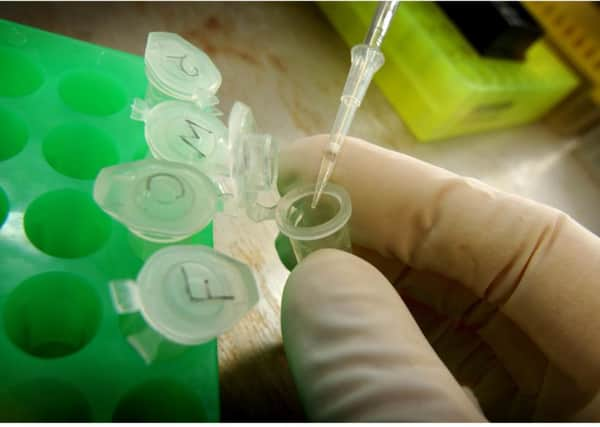Glasgow scientists examine if stroke drug could help MS


A team from Glasgow University will lead the two-year research project, which could offer fresh hope to 11,000 Scots living with the disease.
MS occurs when the protective coating on nerve fibres is damaged or lost, disrupting messages from the brain to the body and putting the nerves at risk of permanent damage.
Advertisement
Hide AdAdvertisement
Hide AdScientists will investigate whether a modified version of a stroke drug known as heparin could help to reduce the damage.
Lead researcher Professor Sue Barnett said: “We’ve already shown that low sulphated heparin can encourage the growth of protective myelin in a dish, and now want to test whether it can help repair myelin around living nerve cells in MS-like conditions.”
Dr Sorrel Bickley, from the MS Society, which funded the project, said: “If researchers can show that heparin promotes myelin repair it could then be tested as a possible treatment for MS.
“Forms of heparin have been used as medicines for years, so if this type proves to be effective it could go through clinical trials more quickly than other drugs.”